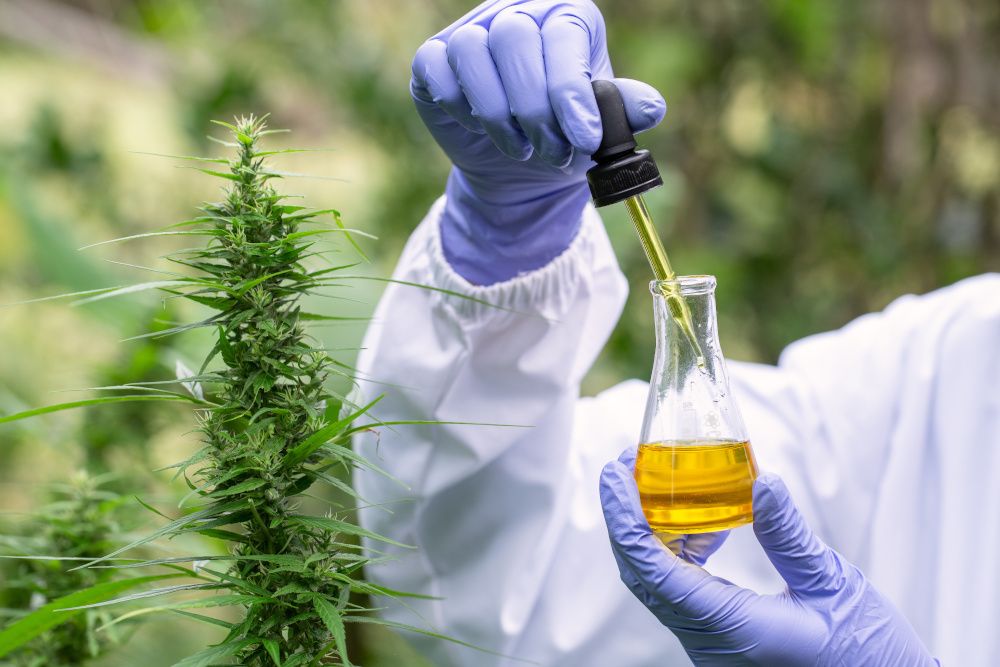FDA’s review of CBD’s oral toxicity should look at dietary supplement dosages, not just drug dosages, CRN writes to agency
The Council for Responsible Nutrition wrote to FDA on May 4 urging the agency to consider all of the safety evidence for CBD supplements that supplement companies have so far submitted to the agency.
The Council for Responsible Nutrition (CRN; Washington, DC) sent a letter to FDA on May 4, 2023, urging the agency to separately evaluate oral toxicity data for CBD dietary supplements and oral toxicity data for CBD drugs. Moreover, according to CRN, numerous supplement companies have already submitted data to FDA demonstrating the safety of CBD supplement dosages. It urged the agency to consider this data when determining the safety of CBD supplements.
CRN’s letter to FDA started by questioning why FDA said earlier this year that it believes hemp-derived cannabidiol (CBD) cannot be made a legal supplement ingredient under existing regulatory laws for supplements; rather, in a statement issued in January 2023, the agency said that an entirely new legislative pathway needs to be developed for CBD to legalize it. In that announcement, FDA stated its concerns about adverse health impacts of long-term CBD use and said that safeguards need to be set for CBD content limits and to prevent children from ingesting CBD products.
In its letter to the agency, CRN pointed out that FDA can already implement safeguards for CBD’s safe usage through the existing dietary supplement framework of the Dietary Supplement Health and Education Act (DSHEA). The agency does not need to create an entirely new regulatory structure for CBD to ensure the aforementioned safeguards; instead, it can make “minor revisions” to DSHEA, CRN said.
“Any additional legislative changes that would be necessary (such as creation of a product listing requirement) could be accomplished with minor revisions to DSHEA rather that the upheaval, considerable expense, and lengthy delays that would result from the creation of an entirely new category of regulated products by FDA,” CRN’s letter states.
Moreover, said the association, even as FDA continues to declare that it needs more information on the safe oral use of CBD, some supplement companies have already submitted information on safe dosages in the new dietary ingredient (NDI) notifications they sent to FDA. (FDA has rejected those notifications by stating that CBD cannot be considered a legal supplement ingredient due to the Food, Drug, and Cosmetic Act’s (FD&C Act) drug-preclusion requirement. Even so, the agency has seen the safety data companies have provided.)
“Industry stakeholders have responded to FDA’s call for scientific evidence on the safety of CBD by investing in research on their ingredients, which encompass a range of CBD-containing hemp extracts, as well as CBD isolate,” CRN’s letter to FDA states. “This research, conducted in accordance with regulatory test guidelines, provides evidence to support the safe use of various CBD-containing ingredients for their intended uses. The studies have been published in peer-reviewed literature, submitted to the public docket that FDA opened to facilitate submission of CBD data, or shared directly with the Agency. CRN is directly aware of numerous companies that have met with the Agency and shared unpublished data in their possession that support CBD’s safety at levels relevant to the products they would market as dietary supplements.”
Don’t Equate CBD Supplement Doses and CBD Drug Doses
CRN also asked FDA to evaluate safe usage levels of CBD supplements and CBD drugs separately and expressed concerns that the agency currently isn’t doing that. FDA should be explicit and transparent about whether the agency’s concerns about CBD dosage concerns relate to hemp-derived CBD extracts for supplements or to CBD isolates for pharmaceuticals. It’s assumed that CBD doses would be higher in pharmaceuticals than in supplements.
For instance, the association’s letter again referred to FDA’s January 2023 announcement that CBD needs a separate regulatory pathway. “In that January announcement,” CRN’s letter states, “FDA identified various potential safety concerns with the use of CBD-containing products but did not address the doses at which potential harm could occur. The Agency did not discuss the relevance of the data the Agency has received that raised safety concerns for CBD (mainly for the drug product, Epidiolex, which is a CBD isolate) to the breadth of hemp-derived CBD ingredients that have been developed for dietary supplement use. That the dose makes the poison, a realization credited to Paracelsus over 500 years ago, seems to have escaped notice by FDA.”
CRN’s letter also questioned why FDA has not yet conducted its own risk assessment on CBD using the information currently available in public databases and that the agency already has in hand. “The agency has had ample access to data and time to utilize the available data to determine a safe level of exposure,” CRN’s letter states. “Other government bodies, including the United Kingdom’s Food Safety Authority, Health Canada, and the Australian Therapeutic Goods Administration, have established recommended maximum upper intake levels of CBD by healthy adults, except those planning to be or currently pregnant or breastfeeding.”
Judge denies CRN’s motion for preliminary injunction but its lawsuit against NY state will proceed
April 23rd 2024The judge in CRN's lawsuit against NY state's law banning the sale of weight management and muscle building supplements to minors has denied its motion for a preliminary injunction, but determined that CRN has standing to sue on behalf of its members.
